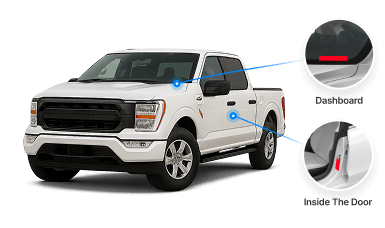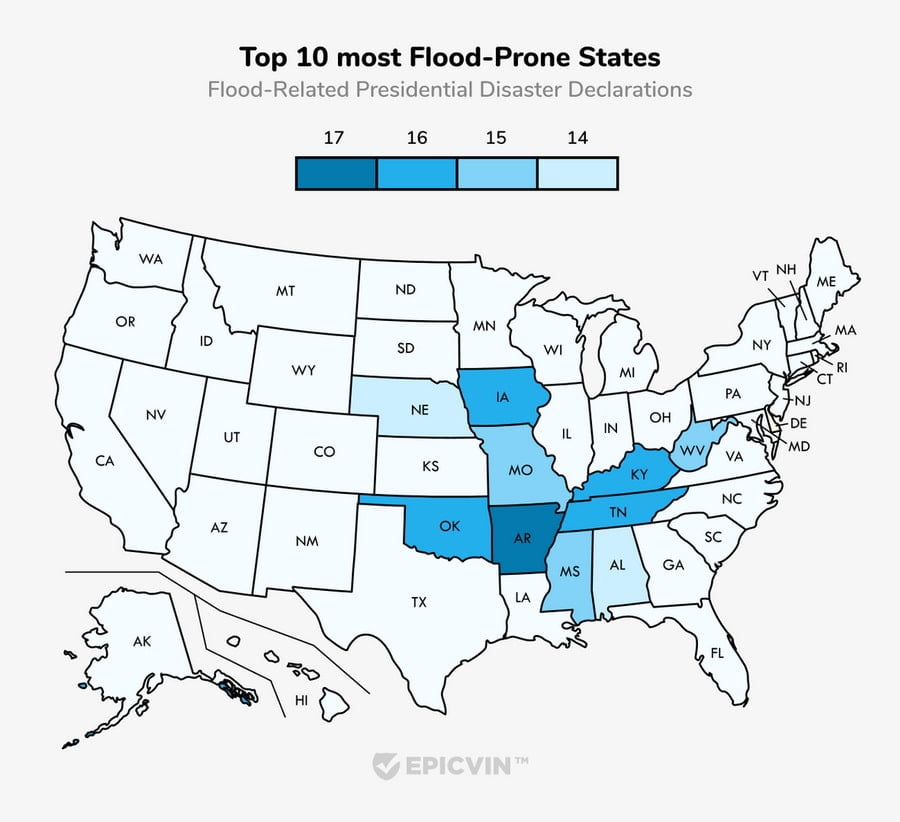
EpicVIN selected for prestigious Cherokee Media Group Award
EpicVIN honored with Emerging 8 award for its contributions to the auto indust...
Looking for the VIN?
Here is there you’ll find it:

EpicVIN makes it very easy for you to search VIN by state. We offer a comprehensive vehicle history report, which can be used by potential car buyers to verify the history of any used car they want to buy within the United States. The process is simple and straightforward. Some information available through our VIN check by state include:
As you should know at this point, free VIN check DMV from EpicVIN is always accurate. We get our information from official and trustworthy databases. When you check the history of your vehicle, you will know the common risks with the particular car. This will help you make an informed decision and avoid regrets after buying a car.
Be confident that the vehicle you’re looking to buy anywhere across the United States is in good standing and condition with an EpicVIN report. Discover the history of your future vehicle, uncover hidden issues, and avoid any unseen costs that could arise.
Using the map below, please select any state to receive information and statistics of your target vehicle.

Actual history versus what the seller claims.
You can always compare the actual records with what the seller of the vehicle is claiming in order to fetch a higher price. A car with a clean title in one state may have a history of theft, crashing, or flood damage elsewhere.
Vehicle’s condition and associated risks by location.
Often, a particular state or city can be vulnerable to disasters, accidents, car theft, and more. Dishonest sellers can hide issues from a vehicle’s past by moving it between states.
For example, what are the chances of buying a stolen vehicle in California?
The map below highlights the 10 states with the highest recorded flood-related disasters. The list may surprise some as only two coastal states (Mississippi and Alabama) are listed while the majority of flooding happened inland. Cars with a driving history in these states are more likely to have flood damage.

The resale market offers a second chance to vehicles involved in fatal crashes.
In the table below, we outline states featuring the most and least number of vehicle fatalities in 2016. Vehicles from these states are more likely to have cars involved in these types of collisions.
| R a n k | State | Passenger Cars | Light Trucks | Total | R a n k | State | Passenger Cars | Light Trucks | Total |
|---|---|---|---|---|---|---|---|---|---|
| 1 | Texas | 1,218 | 1,164 | 2382 | 26 | New Jersey | 234 | 103 | 337 |
| 2 | California | 1,297 | 645 | 1942 | 27 | Washington | 192 | 140 | 332 |
| 3 | Florida | 1,048 | 652 | 1700 | 28 | Kansas | 151 | 161 | 312 |
| 4 | Georgia | 583 | 467 | 1050 | 29 | Iowa | 154 | 140 | 294 |
| 5 | North Carolina | 582 | 417 | 999 | 30 | Maryland | 190 | 100 | 290 |
| 6 | Alabama | 400 | 360 | 760 | 31 | New Mexico | 115 | 153 | 268 |
| 7 | Pennsylvania | 494 | 263 | 757 | 32 | Minnesota | 144 | 107 | 251 |
| 8 | Ohio | 471 | 278 | 749 | 33 | Massachusetts | 163 | 79 | 242 |
| 9 | Tennessee | 421 | 315 | 736 | 34 | Idaho | 74 | 118 | 192 |
| 10 | Illinois | 407 | 297 | 704 | 35 | West Virginia | 85 | 101 | 186 |
| 11 | Missouri | 368 | 298 | 666 | 36 | Utah | 85 | 89 | 174 |
| 12 | Michigan | 377 | 287 | 664 | 37 | Connecticut | 115 | 54 | 169 |
| 13 | South Carolina | 364 | 269 | 663 | 38 | Nebraska | 80 | 88 | 168 |
| 14 | Kentucky | 353 | 236 | 589 | 39 | Nevada | 87 | 65 | 152 |
| 15 | Indiana | 329 | 249 | 578 | 40 | Montana | 53 | 93 | 146 |
| 16 | Mississippi | 273 | 275 | 548 | 41 | Maine | 60 | 61 | 121 |
| 17 | New York | 324 | 192 | 516 | 42 | New Hampshire | 57 | 39 | 96 |
| 18 | Virginia | 308 | 206 | 514 | 43 | South Dakota | 29 | 52 | 81 |
| 19 | Arizona | 261 | 246 | 507 | 44 | North Dakota | 36 | 41 | 77 |
| 20 | Louisiana | 254 | 233 | 487 | 45 | Delaware | 42 | 31 | 73 |
| 21 | Oklahoma | 206 | 261 | 467 | 46 | Wyoming | 17 | 54 | 71 |
| 22 | Wisconsin | 250 | 181 | 431 | 47 | Hawaii | 40 | 23 | 63 |
| 23 | Arkansas | 183 | 210 | 393 | 48 | Alaska | 16 | 42 | 58 |
| 24 | Colorado | 187 | 175 | 362 | 49 | Vermont | 28 | 17 | 45 |
| 25 | Oregon | 180 | 160 | 340 | 50 | Rhode Island | 19 | 11 | 30 |
| Source: US Department of Transportation, NHTSA | |||||||||
State variations in criteria and title-branding designation.
Used vehicle buyers should keep in mind ‘title brands’ as an important indicator to check for several reasons:
For example, one state may use the ‘rebuilt’ brand for a salvaged car that has been restored or rebuilt while another state may use the ‘salvage’ designation for a vehicle in the exact same condition.
Reselling a vehicle with flood damage.
Harvey and Texas were two of the costliest hurricanes in US history that devastated the southern US in 2017. Events like these can greatly influence the history and value of used vehicles for several reasons:
The requirements of auto insurance:
The total loss threshold to determine a ‘salvage’ status:
| State | Threshold | State | Threshold | State | Threshold |
|---|---|---|---|---|---|
| Iowa | 50% | Tennessee | 75% | Idaho | TLF |
| Oklahoma | 60% | Virginia | 75% | Illinois | TLF |
| Nevada | 65% | West Virginia | 75% | Maine | TLF |
| Arkansas | 70% | Wyoming | 75% | Massachusetts | TLF |
| Indiana | 70% | Florida | 80% | Montana | TLF |
| Minnesota | 70% | Missouri | 80% | New Jersey | TLF |
| Mississippi | 70% | Oregon | 80% | New Mexico | TLF |
| Wisconsin | 70% | Colorado | 100% | Ohio | TLF |
| Alabama | 75% | Texas | 100% | Pennsylvania | TLF |
| Kansas | 75% | Alaska | TLF | Rhode Island | TLF |
| Kentucky | 75% | Arizona | TLF | South Dakota | TLF |
| Louisiana | 75% | California | TLF | Utah | TLF |
| Maryland | 75% | Connecticut | TLF | Vermont | TLF |
| Michigan | 75% | Delaware | TLF | Washington | TLF |
| Nebraska | 75% | Georgia | TLF | ||
| North Dakota | 75% | Hawaii | TLF | ||
EpicVIN vehicle history report is a great tool to know the complete story on a used car. You can use our service at any time no matter where you are. Visit our website to access some basic resources that you may need to evaluate your options better.
When looking for a state-specific concerns - you might be interested in:
When you have any car-specific concerns:
Discover expert tips, news and advice on buying and maintaining used vehicles

EpicVIN honored with Emerging 8 award for its contributions to the auto indust...

By following these tips, you will get a great deal on a used car.

In this article, we provide valuable information about purchasing a vehicle wi...